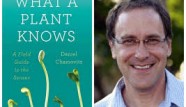MOOC Revolution at TAU

More than 30,000 students are expected to participate in a course taught by TAU Prof. Daniel Chamovitz.
What A Plant Knows is an on-line course being offered by the Coursera consortium.
Since it was founded about a year and a half ago, Coursera-affiliated educators have taught over 300 courses to more than 4 million students around the world, including one course that attracted a whopping 180,000 students.
The MOOC (Massive Open Online Courses) revolution is here and it is bringing with it many new possibilities.
As organizations like the Coursera consortium have already shown, there is a huge potential for reaching a mass market through on-line learning.
Coursera is a private for-profit organization and it’s main initial source of revenue is from tuition fees from students taking the courses for credit. But these are the early days. There are already a number of additional revenue generators such as affiliate marketing with publishers and other organizations. One can expect many innovative business models to emerge as this unprecedentedly large, global and internet-savvy market becomes more and more engaged.
What A Plant Knows, which starts October 1, 2013 is based on the bestselling book of the same name written by Prof. Chamovitz, a well-known plant genetics researcher, who was the first to discover that the COP9 Signalosome protein complex found in plants is also essential for development of animals and thereby may be involved in a number of human diseases including cancer.
Prof. Chamovitz’s MOOC course promises to offer a kind of added value that neither readers of his book or participants in his regular TAU course would receive: Working with a TAU video crew, Prof. Chamovitz will enable students to make virtual visits to his lab and observe on-going experiments. Future plans include actually involving the students in the research – the prospect of accessing 30,000 or so participants suggesting all kinds of tantalizing new research paradigms.
In addition to students, the course organizers, based on past experience, expect a significant number of university lecturers and researchers to also enroll as it will provide them with a chance to see a colleague in action and learn from his methodology. This type of demographic opens up marketing possibilities as does information about the students’ country of origin.
In the case of What A Plant Knows, the majority of students are not expected to be local Israelis. The top four countries with students showing interest in the course are the U.S., India, Canada and Brazil. The fact that one of the countries that trails not far behind is Viet Nam, is an example of unexpected and potentially valuable data.
Researchers who may have felt that it would be necessary to move away from teaching in order to get into the business world, may now find that being involved in this new form of teaching may bring business opportunities right into their own classroom.
And because those taking these courses without credit can do so for free – both the world of education and the business world stand to benefit.

